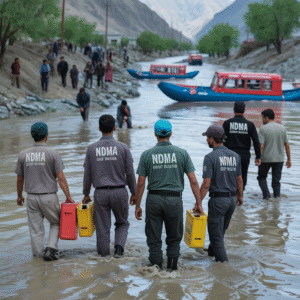Imran Khan Release Unlikely Anytime Soon, Say Authorities
Former Prime Minister Imran Khan remains in custody despite recent bail approvals, as authorities indicate that his release is not expected in the foreseeable future. The legal and political complications surrounding his cases continue to dominate Pakistan’s political landscape.
Background of Imran Khan’s Legal Troubles
Imran Khan, the chairman of Pakistan Tehreek-e-Insaf (PTI), has been facing multiple charges since his arrest in connection with the May 9 protests. The demonstrations, which erupted following his detention earlier last year, were marked by violence and attacks on state institutions.
The government has consistently maintained that Imran Khan and his party leadership were responsible for instigating unrest. This has led to a series of criminal cases, making his legal battle one of the longest and most complex in Pakistan’s political history.
Supreme Court and Bail Decisions
While the Supreme Court has granted him post-arrest bail in some of the May 9 cases, the relief has not translated into immediate freedom. Analysts say the overlapping charges and pending investigations mean that Imran Khan is unlikely to walk out of jail soon.
Legal experts also point out that the state has the option to file appeals or introduce new charges, further delaying his release. This cycle of bail approvals and fresh detentions has become a defining feature of his legal challenges.
Authorities Signal No Early Release
According to government officials, Khan’s release is not expected in the foreseeable future. Authorities argue that ongoing investigations need to be completed and that national security concerns are at stake.
Some insiders also suggest that the political climate is not favorable for his return to active politics. Allowing him to re-enter the public arena could reignite unrest, which the government wants to avoid ahead of sensitive political developments.
Political Reactions and PTI’s Position
PTI leaders have strongly condemned the authorities’ stance, calling it a violation of human rights and judicial independence. They argue that Imran Khan is being held on political grounds rather than legal merit.
Supporters believe his detention has only increased his popularity among the masses. Many view him as a symbol of resistance against what they describe as selective justice and political victimization.
On the other hand, rival parties maintain that accountability is necessary and that Khan must face the consequences of actions linked to the May 9 unrest.
Impact on Pakistan’s Political Future
Imran Khan’s uncertain legal position continues to impact Pakistan’s political stability. With general elections expected in the near future, his absence raises questions about PTI’s ability to mobilize voters effectively.

Analysts say that even if Khan is eventually released, the restrictions placed on his political activities may limit his influence. However, his ability to connect with the public and maintain support could still shape the political narrative.
International Observers Weigh In
The international community has been watching closely. Human rights organizations have raised concerns about fair trial standards and the use of broad legal measures to silence political opposition.
Meanwhile, foreign governments are cautious, urging Pakistan to ensure transparency in judicial proceedings while maintaining law and order.
Conclusion
Imran Khan’s future remains clouded by legal and political uncertainty. While bail approvals signal some relief, the authorities’ position makes it clear that his release is not on the horizon anytime soon.
For now, the former Prime Minister remains at the center of Pakistan’s political storm, with his detention shaping the narrative of both governance and opposition in the country.














